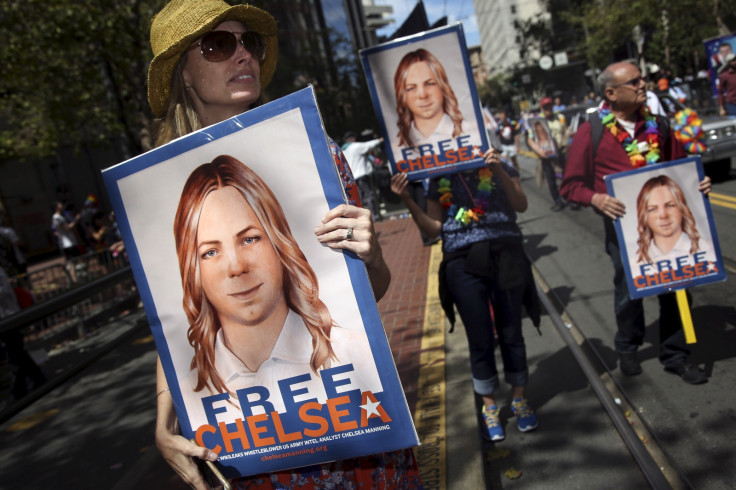WikiLeaks soldier Chelsea Manning: It's terrifying to take on the government alone
Manning's fears revealed as military mulls solitary confinement after suicide attempt.

The US soldier pacifist who leaked thousands of classified documents to WikiLeaks and who recently tried to kill herself in prison talked about the soul-destroying horror of "facing the government alone."
"I am always afraid. I am still afraid of the power of government," said Chelsea Manning, who is three years into a 35-year sentence for treason at a US military prison in Fort Leavenworth, Kansas.
"A government can arrest you. It can imprison you. It can put out information about you that won't get questioned by the public — everyone will just assume that what they are saying is true. Sometimes, a government can even kill you — with or without the benefit of a trial."
Manning revealed her fears in an interview in late 2015 with Amnesty International that was provided to the Guardian. Her comments were released just as the Amercian Civil Liberties Unions revealed that Manning could face solitary confinement as punishment because of her suicide attempt in early July.
Manning talked about her early fear when she was initially arrested and held in Kuwait for the leaks which she had hoped would open America's eyes to the increasingly aggressive military action by the US around the world
"The military had total control over every aspect of my life. They controlled what information I had access to. They controlled when I ate and slept. They even controlled when I went to the bathroom," she recalled.
"After several weeks, I didn't know how long I had been there or how much longer I was going to be staying. It's an overwhelmingly terrifying feeling. I became very, very sad. At one point, I even gave up on trying to live any more."
To ward off the gloom of prison, Manning says she tries to stay as "active and productive as possible," reading books and newspapers, writing and exercising. She also "loves" reading supportive mail she gets from all over the world.
Asked if she still believes any good will come out of her actions, she responded: "This is a very difficult question to answer. I don't know. I don't even want to try and work it out."
But Manning added: "I am hopeful that people can gain more of an understanding of how the world operates. Across the world, governments can easily become centered on themselves and their interests, at the expense of their people.
"I am also hopeful that, perhaps, the next time a democratic government thinks about committing military forces to the occupation of a country which is likely to lead to an insurgency, we can try and look back, and learn from the last time. War is a terrible thing."
© Copyright IBTimes 2025. All rights reserved.





















